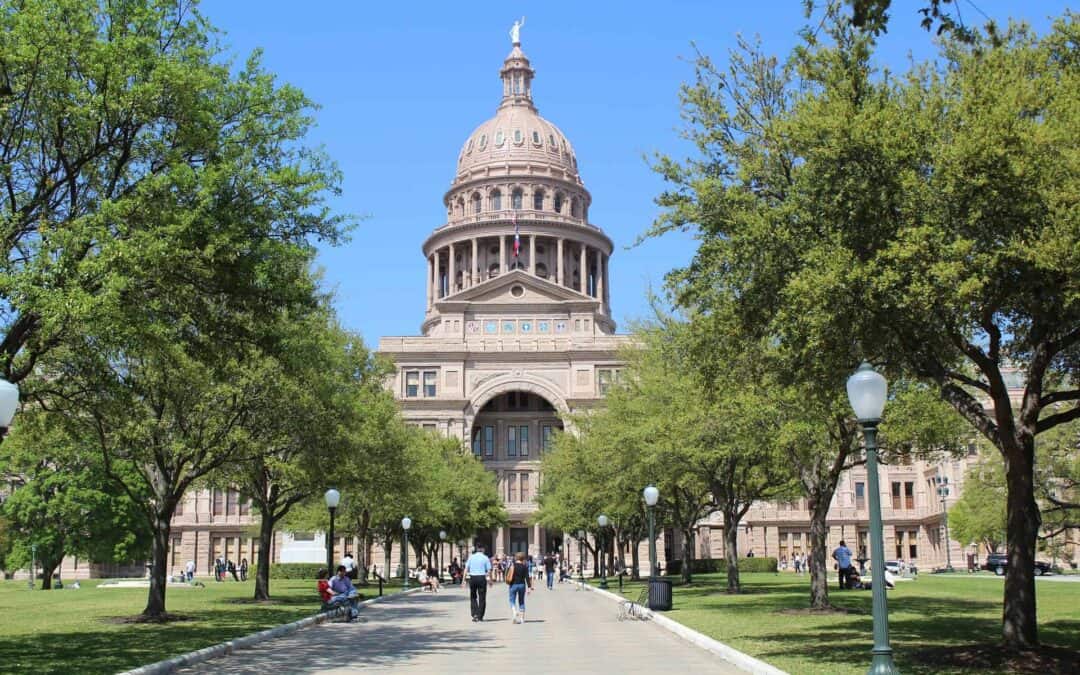Our role in the creation of a new Texas law that tackles the benefits cliff and holds the potential to fundamentally transform the way poverty is addressed statewide.
What is the benefits cliff?
The benefits cliff is the immediate drop off that occurs when a wage earner from a family receiving a public benefit begins work and loses their benefits. The increased income is not enough to move them to self-sufficiency but immediately disqualifies them from receiving public benefits. That lack of immediate financial gain and decrease in financial assistance results in families remaining in or re-entering poverty.
[yotuwp type=”videos” id=”kNeeYKZ8Fnk” player=”cc_load_policy=0&iv_load_policy=3″]
You can see in the video above how the benefits cliff acts as a barrier for those trying to get ahead. Like our client, Sarah.
Sarah’s story
Sarah has four kids, one with severe autism who requires in-home therapy. Trying to provide for her family, Sarah began a part-time cleaning job for less than $10 an hour — immediately losing more than $500 in public assistance as a result. Five hundred dollars that meant groceries for her children, a roof over their heads, and gas to get to work. In the end, Sarah quit her job because she could not afford to go to work. She just couldn’t survive on her own yet. What is more counterintuitive is because she was now more in need, she qualified for additional programs previously not available for her.
What’s happened and our involvement
The benefits cliff is a problem we have been advocating to fix for some time. As a result, we were thrilled to use our experience to provide input and consultation into the draft language of this newly passed bill.
Commonly referred to as the “Making Work Pay” bill, the new law authorizes a pilot program testing the effects of a slow reduction of public assistance payments on the benefits cliff. Additionally, the law requires providers to offer intensive case management as part of the solution.
Over a period of two to five years, the pilot will serve more than 500 recipients of the federally funded Temporary Assistance for Needy Families and Supplemental Nutrition Assistance Program.
HB 1483, or the “Making Work Pay” Bill, is one of the few bi-partisan welfare reform bills passed this legislative session. Even better, the bill includes CCFW’s definition of “out of poverty,” effectively exporting our definition to any organizations that operate this program. CCFW defines out of poverty by four metrics — earning a living wage, having savings in the bank and demonstrating savings behavior, having no inappropriate debt, and living free of government subsidies.
We’re hopeful the Health and Human Services Commission and the Texas Workforce Commission will utilize our Padua program as a model for the pilot’s case management component. The pilot program will also include a randomized control trial and a third-party evaluator, so its true effectiveness can be tested.
Want to learn more about CCFW’s work and get involved with our poverty-ending work? We’d love to have you attend a KNOW Poverty Hour — a dynamic one hour tour of our mission in action.

